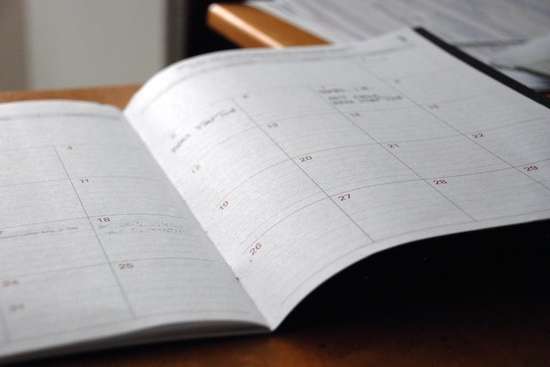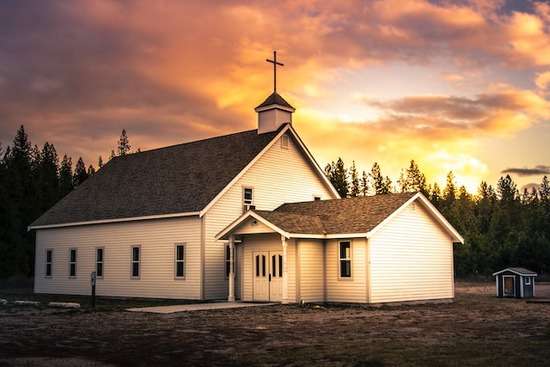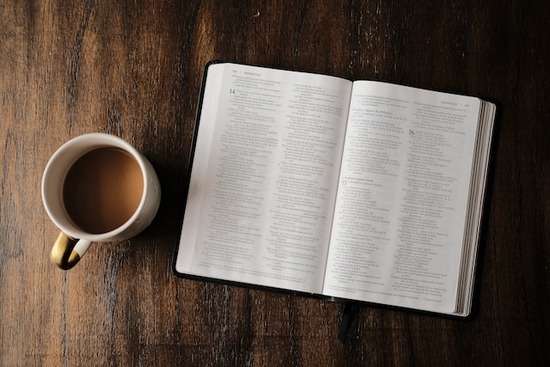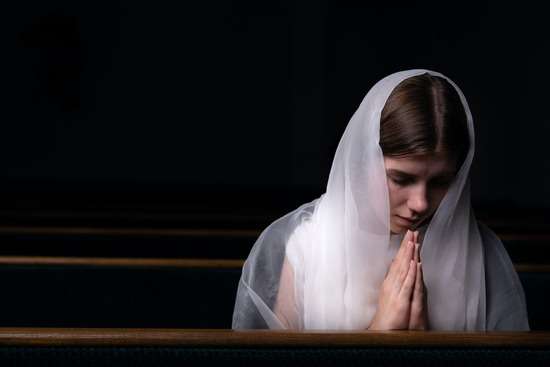The Sabbath is a declaration of weekly rest by God which we find in the Bible (Genesis 2:2-3). But you may be wondering:
How do we know exactly what day the Sabbath falls on? Did it get changed by Jesus Christ or anyone else? Do we get to pick a specific day to worship on?
In this article, we’ll clear up all your confusion about the biblical Sabbath by answering these five questions:
- Why keep a day of worship?
- How do we know which day Sabbath is?
- Was the Sabbath changed to Sunday?
- Does it even matter what day we keep Sabbath?
- How can we celebrate the Sabbath each week?
Let’s first talk about why keeping a day to rest and worship is so important.
Why keep a day of worship?

Photo by Jeremy Bishop
Right at Creation, God set aside one day every week for us to worship and rest (Genesis 2:2-3). And this wasn’t arbitrary on His part. He knew our bodies needed a day set aside from weekly stress and work to reconnect with Him and our friends and family.
Numerous studies now also show that a period of rest every week helps your body and mind stay stronger, more focused, and energetic. Our bodies run on a seven-day calendar, and if we push the limits, our bodies miss that rest and suffer, even if we don’t feel any effects at first.
But there’s more. God gave us the Sabbath as a sign to mark His creation of us—something that’s emphasized in the fourth commandment in Exodus 20:8-11. Then, Ezekiel 20:12 shows us that it also signifies the way He has set us apart as His people.
Keeping Sabbath is an act of submission to God in worship, remembering what He has done and is doing for us. It’s a special way in which we connect with Him, without the distractions of daily life.
Thus, both science and the Bible show that taking a day off every week—a Sabbath—is crucial. And the Bible specifies this day as “the seventh day” (Genesis 2:2), which many today believe to be Saturday.
So, how do we really know?
How do we know which day the Sabbath is?
The biblical Sabbath occurs on Saturday, the seventh and last day of the week. Many people think it’s impossible to know this for a fact, but you might be surprised! We can find evidence for the Sabbath being on Saturday from three different areas: the biblical account, Jewish tradition, and the calendar.
Let’s explore each of them.
The Bible and Jesus’ example
Scripture gives us numerous examples to tell us which day of the week Sabbath is.
Besides the Old Testament account from above, God gave Israel ten guidelines to follow after they left Egypt. These are referred to as the Ten Commandments. The fourth commandment—also known as the Sabbath commandment—instructed them to set aside the Sabbath as a holy day:
“Six days you shall labor and do all your work, but the seventh day is the Sabbath of the Lord your God” (Exodus 20:9-10, NKJV).
Here God clearly states the location of the Sabbath on the weekly calendar: the seventh day, the last day of the week.
If that weren’t enough, God reminded them with manna, a special wafer-like food He provided on the ground for them every morning. It fell every day of the week, the same amount, until the sixth day (Exodus 16:22). On the sixth day, a double amount fell.
This double amount allowed them to collect enough so they could rest the next day—which was the seventh day or Sabbath (Exodus 16:23). This way, the special characteristics of the seventh day of the week became ingrained in the Israelite culture.
Now, you might be thinking, The Israelites didn’t stay loyal to God. They abandoned Him many times for their own false worship.
What if they lost track of which day the Sabbath was on?
To answer that question, let’s fast forward to the New Testament and first-century Palestine. At this time, Jesus Christ was on earth. He, too, kept the Sabbath. Here’s one example:
“So He [Jesus] came to Nazareth, where He had been brought up. And as His custom was, He went into the synagogue on the Sabbath day, and stood up to read” (Luke 4:16, NKJV).
From this verse, we see Jesus habitually kept the Sabbath, just as God had commanded thousands of years before.
If He, being the Son of God, saw that the Jews were keeping the wrong day as Sabbath—that they had gotten mixed up during years of rebellion against God—He would have undoubtedly told the religious leaders.
Jesus wasn’t afraid to debate with the rulers on other points of Sabbath observance. In Matthew, He confronted the Pharisees over what was considered work on this day of rest (Matthew 12:1-8).
If He saw they had gotten mixed up and were worshiping on the wrong day—say, the fifth or sixth day instead—He would have let them know.

Photo by simon wood on Unsplash
But He didn’t.
Later, Jesus honored the Sabbath even in death. After He was crucified, He was buried in a tomb on a day we know as Good Friday. Some of the women wanted to prepare Him for burial but it was too close to sunset on Friday. Luke 23:56 (NKJV) states,
“Then they [the women] returned and prepared spices and fragrant oils. And they rested on the Sabbath according to the commandment.”
On Sunday morning, Jesus rose from the dead—meaning that the day in between (called Sabbath) must’ve been what we know as Saturday today.
Next, let’s examine Jewish traditions and practices and how they help us establish the day the Sabbath falls on.
Jewish tradition
Jewish tradition places a very high value on Sabbath or shabbat, as they call it—so much so they would not have lost track of what day it’s on over the centuries. Here’s a little window into how they celebrate it.
The Jewish Sabbath begins Friday around sunset with ceremonious events to mark the start.1
On Sabbath morning, Jews congregate at the synagogue for services. Selections from the Torah—the first five books of the Bible—are read, and an educational sermon is preached.2
Jews return to the synagogue for an afternoon service, or they might spend the time walking or visiting with friends.
An evening service brings the Sabbath to an end. Jewish tradition closes out the Sabbath with other ceremonious events to remind them of its significance.3
With this faithful observance of Sabbath and careful recordkeeping, it’s highly unlikely that the Jews would have somehow mixed up which day it falls on. But you might also be wondering about the calendar. Different calendars have come and gone over the millennia—how do we know the calendar wasn’t changed?
The calendar

Photo by Eric Rothermel on Unsplash
Over the centuries, different cultures have kept a variety of calendars to track dates and time. Today, we follow the Roman calendar. But how do we know the seventh day on this calendar was the same seventh day on previous calendars (particularly in Bible times)?
The answer comes in the standardization of the Roman calendar.
Before the Roman emperor Constantine legalized Christianity in A.D. 313, the Roman calendar varied. Many used a seven-day solar calendar handed down from the Greek and Babylonian civilizations, but some used shorter-week calendars and some longer.4
About the time Jesus walked the earth, the Romans began to standardize the seven-day week, incorporating names of planets to mark the days (for example, Saturn’s-day became Saturday, and Moon’s-day became Monday).5 This calendar became known as the Julian calendar.
When Constantine legalized Christianity, he merged the Jewish calendar with the Roman calendar to officially make the week seven days long for his whole kingdom. He also decreed Sunday the first day of the week, reestablishing what the Jewish calendar already followed.6
By the 1500s, however, this calendar was off by about 10 days. A tiny miscalculation in the length of a year caused a cumulative error.
Here’s where the switch to the Gregorian calendar—our modern calendar—came in. When it was introduced in 1582, it skipped ten days, going directly from October 4 to October 15.7
Did the days of the week get mixed up?
No, skipping ten days really had no bearing on the sequence of the weekdays. October 4 of 1582 was a Thursday. October 15, the next day, was on a Friday.
The day of the week didn’t change—only the date. The seventh day was still the seventh day, except it was the 16th instead of the 6th.
Here’s what Dr. W. W. Campbell, Director of the Lick Observatory in California, said:
“The week of seven days has been in use ever since the days of the Mosaic dispensation, and we have no reason for supposing that any irregularities have existed in the succession of weeks and their days from that time to the present.”8
Calendars and ways of organizing dates may have changed, but the days themselves haven’t changed. The seventh day today is still the same seventh day from 3,000 years ago.
The name in other languages for the seventh day of the week—Sabbath or Saturday—reflects this. Look at the term for Saturday in the following languages:
- Italian: Sabato
- Portuguese: Sábado
- Polish: Sobota
- Spanish: Sábado
- Indonesian: Sabtu
- Sundanese: Saptu
- Corsican: Sabatu
All of them sound similar to “Sabbath,” subtly pointing back to this special day and its placement on the calendar.
Was the Sabbath changed to Sunday?
The Sabbath, as a day of worship and rest, was changed to Sunday. But not by Jesus, the early church, or anyone else in Bible times. The Bible does not indicate any need for this change, either. Humans changed the day later without direction from God.
Jesus never mentioned a change in the day Sabbath was held on. As we’ve already seen, He observed Sabbath on the same day as the other Jews His whole life.
When He died, the women who wanted to embalm Him still observed the Sabbath:
“And the women who had come with Him from Galilee followed after, and they observed the tomb and how His body was laid. Then they returned and prepared spices and fragrant oils. And they rested on the Sabbath according to the commandment” (Luke 23:55-56, NKJV).
If Jesus wanted them to worship on a different day, He would have told them before He died. Then they could have embalmed Him instead of waiting till Sunday.
Neither did the apostles change the day of worship after Jesus ascended into heaven. The book of Acts is filled with numerous examples of the apostle Paul going into the synagogue on the Sabbath (Acts 13:14; 18:4).
It even tells us that on the Sabbath, “Paul, as his custom was, went in to [the synagogue]” (Acts 17:1-2, NKJV, emphasis added).
Paul was an ex-Pharisee, and would have spent his entire life going to the synagogue on Sabbath. If the day of the Sabbath had been changed, it wouldn’t have been his custom anymore; it would have been a new practice.
Even in Colossians 2, when Paul wrote that believers shouldn’t judge one another regarding sabbaths, he was not referring to the weekly Sabbath; he was talking about festival sabbaths, ceremonial sabbaths, and agricultural rest periods the ancient Hebrews celebrated (Exodus 23:10-11; Leviticus 23:24, 37-39; 25:8).
Evidence in Scripture repeatedly points to the Sabbath being the seventh day of the week, our modern Saturday. So, does it really matter whether we keep this day or another?
Does it matter what day we keep the Sabbath?

Photo by Joel Rohland on Unsplash
As we can see from the points above, God cares about what day we keep the Sabbath. He created it for our benefit, so He would know the best way to celebrate it.
Think of it this way:
Suppose someone bought you a new cell phone as a gift. In using it, you decide you want to change how it displays something or how it operates. You don’t understand how the hardware inside the phone works, yet you unscrew the back and start fiddling with the wires and computer chips inside to try to get it to do what you want.
The only result you’ll get is a messed-up phone that doesn’t work the way it was intended—and perhaps not at all.
The same with Sabbath. God created it to be on the seventh day, the last day of the week. This day, we can rest and recharge, so we’re ready for another week. If we pick other days of the week, we’re trying to mess with the hardware of Sabbath when we don’t understand how it works.
Sabbath can’t benefit us in the best way if we’re not enjoying it the way God intended.
So, let’s look at some ways we can take part in the Sabbath every week!
How we can celebrate the Sabbath

Photo by Timothy Eberly on Unsplash
As we read earlier, God created the Sabbath as a day to rest from the busy lives we lead the rest of the week. Our bodies get that necessary wind-down time to reset and gear up for another week.
So what exactly does this restful day look like?
Seventh-day Adventists like to celebrate Sabbath by attending church. Here, we engage in Bible study, sing songs of worship, listen to a sermon, and fellowship with other people. We may stay for a meal after the service, where we can spend more time with others.
In the afternoon, we do a variety of things, including:
- Study the Word of God with others
- Visit sick or elderly church members or family members
- Walk at a park
- Watch a Bible-themed movie
- Read religious material
(See a bigger list of Sabbath activity ideas.)

Photo by Jason Briscoe on Unsplash
Adventists also try to minimize the amount of everyday activities we do on Sabbath. We typically leave things like cleaning the house and washing cars to other days because it’s work that doesn’t have to be done on Sabbath.
We might cook labor-intensive meals on Friday, so all we have to worry about on Sabbath is warming them up. Or we might iron church clothing Friday afternoon to avoid a last-minute rush before church Sabbath morning.
This might all seem a lot to think about, but really, it boils down to this principle: take a break from all the unnecessary, regular things and use the time to worship God, serve others, and spend time with family and friends.
As Jesus said,
“The Sabbath was made for man, and not man for the Sabbath” (Mark 2:27, NKJV).
God created the Sabbath as a needed break from everyday living. He meant it to be a delight (Isaiah 58:13), a restful beacon to look forward to every seventh day of the week.
He put it at the end of the week for us to end our week with rest, not work. Numerous examples throughout the Bible and history reveal to us that He always meant it to be on the seventh day of the week, never any other day.
And though we may not understand it completely, we can trust it’s for our benefit.
If you’d like to learn more about more practical ways to make Sabbath a special weekly event,
Choose an Online Bible Study
Want to keep learning? Find out more about Jesus, humanity, the plan of salvation, and how God loves you enough to sacrifice everything, just to give you a chance to choose Him.
Sometimes it can be hard to know where to start, that’s why we offer free, user-friendly, online Bible study options you can do anytime, anywhere, and at your own pace.
This online Bible school will take you through the major themes of Scripture, breaking down the Bible’s complex concepts into bite-sized pieces, which can lead you toward the answers of life’s more challenging questions.
Related pages
- Roos, Dave, “Why Is Shabbat So Central To Jewish Tradition?” How Stuff Works. [↵]
- Ibid. [↵]
- Ibid. [↵]
- “The Seven-Day Week in the Roman Empire and the Near East,” University College London. [↵]
- “The Seven-Day Week,” University College London. [↵]
- “Week,” Britannica. [↵]
- “Ten Days That Vanished: The Switch To The Gregorian Calendar,” Britannica. [↵]
- Quoted in “Was Sabbath Lost Because of a Calendar Change?” BibleInfo. [↵]
More Answers
What Counts as “Work” on the Sabbath?
God designed the Sabbath day to be a 24-hour period when we could pause and enjoy the goodness of His creation. We do this by putting aside our regular work so we can focus on spending time with Him and appreciating what He’s created (Exodus 20:8-11).
Who Changed the Sabbath to Sunday?
If the Bible never mentions the change of the Sabbath, why do so many today attend church on Sunday?
Sabbath Keeping: What It Looks Like in the Bible
That Sabbath would not be about a checklist of rules but about a mindset of rest. It’s a day to set aside daily cares and connect with God, our Creator. Out of our love for Him, we take the principles of the Bible and apply them in the way we keep the Sabbath.
Rest and Reconnection: What It Really Means to Keep the Sabbath
The Bible tells us that we keep the Sabbath by avoiding work. God made this law because he knew it would strengthen us and bring us joy, as well as give us time to reconnect with Him and recharge from our busy lives.
Why is the Sabbath Observed from Sunset to Sunset?
If you know of any Adventists, you may have noticed that they stop their work or business activities before sundown on Friday. What’s the reason behind this?
How Important is a Weekly Sabbath as a Day of Rest?
Around the world, different religious groups have had a Sabbath—a day set apart for rest each week. A day to worship together, spend time with loved ones, and to just rest.
Why do Adventists Worship on Saturday?
Adventists worship on Saturday, because they acknowledge God’s call to worship on the seventh-day Sabbath, as described in the fourth commandment and other passages of Scripture. It’s a memorial of Creation and an acknowledgement of God as our loving Creator.
Didn’t find your answer? Ask us!
We understand your concern of having questions but not knowing who to ask—we’ve felt it ourselves. When you’re ready to learn more about Adventists, send us a question! We know a thing or two about Adventists.












